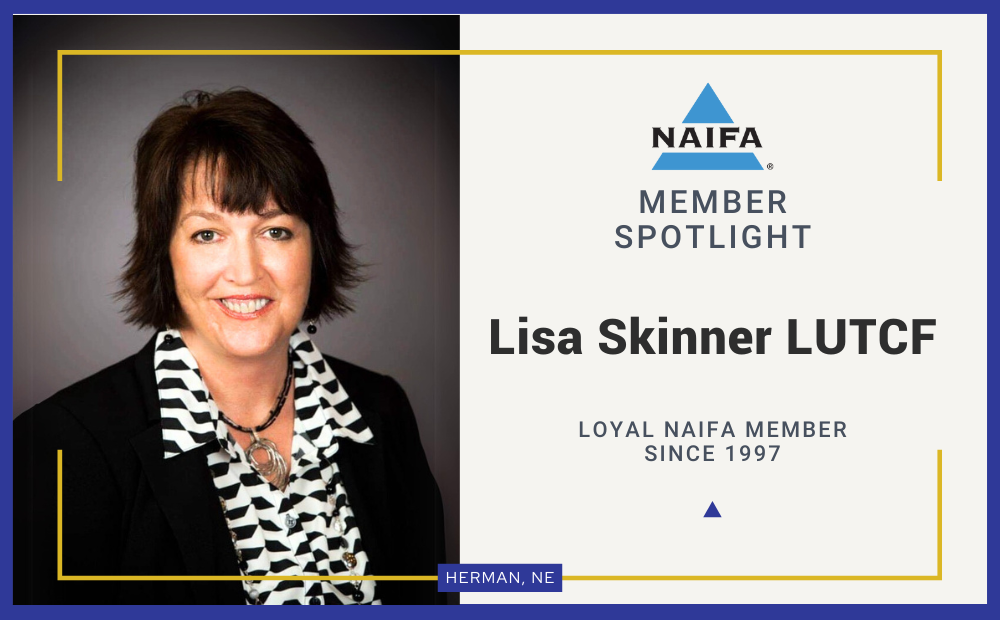NAIFA members Mark Acre, Steve Cassaday, and John Wheeler offered a workshop at NAIFA’s P+P conference providing different perspectives based on their personal experiences and insights into what brought them into the business and how they achieved success.
Mark Acre, a recent NAIFA Young Advisor Team Leader of the Year, told attendees one of the great benefits of NAIFA is having a group of mentors, like John and Steve, to help you succeed in the business. Meetings like P+P present you with challenges to think about that you can implement to improve your practice when you go home. Earlier in his career, as a young advisor, these were particularly beneficial.
It’s important to keep yourself accountable and keep track of the habits and practices that lead to success, he said. Set goals and adjust them as you achieve success. Your goals should not be easy, they should “make you a little bit uncomfortable.”
It’s important to keep track of how you are achieving success. Know your numbers, write them down, so you “know if you won each day, each quarter, each year.”
“What gets measured, gets done,” Acre said.
It’s also important to look for opportunities that challenge you and change your perspectives. NAIFA’s Leadership in Life Institute will teach you to “begin with the end in mind.”
John Wheeler, representing the Baby Boom Generation, said he learned to have a strong work ethic from a very young age. He entered the business and got his license on his 18th birthday because he wanted to be successful for himself. He decided early on that he would need to dedicate and hour to an hour and a half each day to improve himself professionally.
He became very successful by helping others, and that is something he finds particularly satisfactory.
“The more people we help, the better we do,” he said. “If we do things the right way, we are securing people’s futures. At the end of the day, when we go to a wake, we’re the only ones carrying a check. Everyone else is carrying bills.”
Also, agents have a responsibility. People who need help won’t get it unless insurance professionals provide it. Wheeler told the emotional story of a friend for early in his career who he had never approached to offer life insurance. When the friend died prematurely, his family lost their home. It gave Wheeler the incentive and sense of responsibility to help as many people as he can.
Ultimately, to achieve success, Wheeler said. It’s important for producers to look at situations from the client’s point of view, because being successful as an insurance professional requires developing trust and relationships. He always asks clients, no matter who they are and no matter what their net worth: “What is important to you? What are you concerned about? How do you want to be remembered?”
Asking questions and getting to know and understand clients establishes a reason to talk.
NAIFA has kept Wheeler in business, he said, because that’s where he’s been able to establish relationships with other professionals. “There’s no reason for a NAIFA member not to be successful, because we are all here to help each other,” he said. “We’re one of the only industries where we are happy to share our secrets.”
Steve Cassaday wrapped up the session with a presentation on practice management. “I’m uniquely qualified to speak on practice management, because I’ve made every stupid mistake in practice management you can make,” he said.
Successful practice management depends on finding the right people to work with to ensure the practice succeeds, and making sure the right people are in the right positions. Management is a team process.
It starts by looking at yourself and asking what defines you. What do you every day? Keep a log of your daily activities, he suggested. You will see that it’s amazing how many things you have going on. Look for things on your list that other members of your staff can do better or cheaper than you. Concentrate on high-payoff activities, such as:
- Asking for referral of people who can do business
- Speaking with those who can or are doing business with you… about business.
- Speaking in front of groups that can do business
- Speaking and meeting with “centers of influence” that can refer people who do business
In short, as head of a practice, you should spend your time in front of people who can do business with you. These are high-payoff activities. Then you delegate, eliminate or automate low payoff activities, “which is everything else.”
More specifically, things to do to avoid low-payoff activities include:
- Have an assistant screen mail and email
- Standardize spreadsheets, proposals and correspondence
- Have a well trained staff to handle most client calls
- Don’t goof off on the internet
- Have staff to do “research” and “planning”
- Leverage technology
- Create an executive team to run the business










.png?width=300&height=300&name=CC%202025%20Ad%20(300%20x%20300%20px).png)
.png?width=300&height=600&name=Tax%20Talk%20Graphic%20-%20email%20tower%20(300%20x%20600%20px).png)



.png?width=300&name=NAIFA-FSP-LH%20with%20tagline%20-%20AT%20blog%20email%20ad%20(300%20x%20250%20px).png)
.png?width=728&height=89&name=2024%20Congressional%20Conference%20(728%20x%2089%20px).png)
